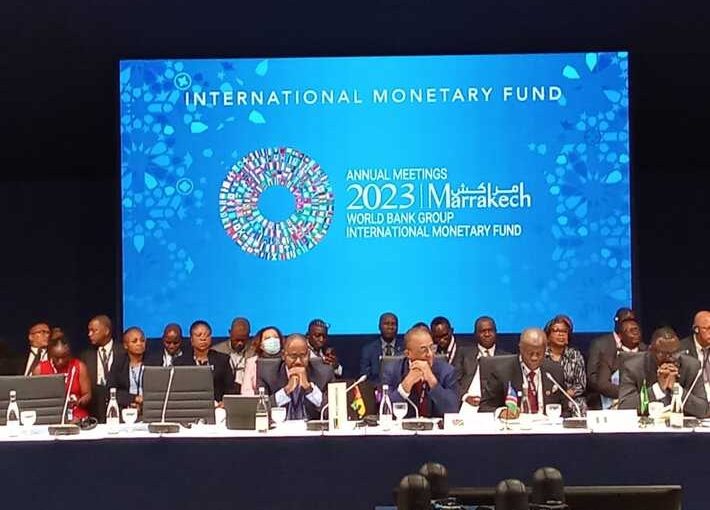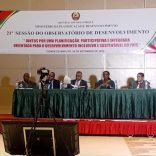Mozambique: Overtime payments will be staggered, says Minister
Mozambique: Budget foresees 5.5% GDP growth in 2024, no civil service pay rise

Illustrative image. Deputy finance minister Amílcar Tivane was speaking to Lusa, on the sidelines of the annual meetings of the International Monetary Fund and the World Bank, which are taking place this week in Morocco. [Image: Ministério da Economia e Finanças de Moçambique]
The Mozambique government’s draft state budget for 2024 does not provide for increases in civil servants’ pay, and foresees economic growth of 5.5%, said the deputy minister of economy and finance, in an interview with Lusa in Marrakech.
“We have created provisions in the state budget for the government to manage wage policy, but we want to ensure the stabilisation of the wage bill,” said Amílcar Tivane in an interview with Lusa, on the sidelines of the annual meetings of the International Monetary Fund and the World Bank, which are taking place this week in Morocco.
“We’ve already made substantial increases for middle-income classes and we hope to have returned purchasing power; we don’t expect [to have] significant increases” in 2024, added Tivane, in the week in which the cabinet approved the draft budget, which is to be debated in parliament between now and December.
According to the deputy minister, “the decision on an increase can be made, but the increases must not deviate from the trajectory of the wage bill,” which Mozambique’s Frelimo government wants to maintain at its current level.
The macroeconomic scenario points to growth in gross domestic product this year of 5.5%, half a percentage points more than the IMF forecast, which estimates economic growth of 5.0% in 2024, with the cost of servicing public debt consuming almost half of tax revenue.
“The 5.5 percent target is in line with the progress we’ve seen in the extractive sector, particularly in liquefied natural gas, but it’s not just driven by the dynamics of the gas sector – there are also sectors like agriculture and manufacturing,” said Tivane, admitting that despite the prospects for economic growth, debt remains one of the country’s main problems.
According to the minister, the government dedicates “just over forty percent of tax revenue to servicing the debt [but this] has grown a lot; it absorbs an increasing proportion of what is fiscal space that should be channelled towards investments in the country’s development, hence the consolidation effort” in public finances that needs to be made.
“The budget is structured to pursue the government’s economic and social policy objectives, fundamentally the creation of conditions to increase fiscal space to support investments that can accelerate the pace of recovery of the Mozambican economy, which has been plagued by multiple shocks in recent years,” concluded the deputy minister, emphasising that the budget consolidation measures will be carried out mainly on the expenditure side.













Leave a Reply
Be the First to Comment!
You must be logged in to post a comment.
You must be logged in to post a comment.